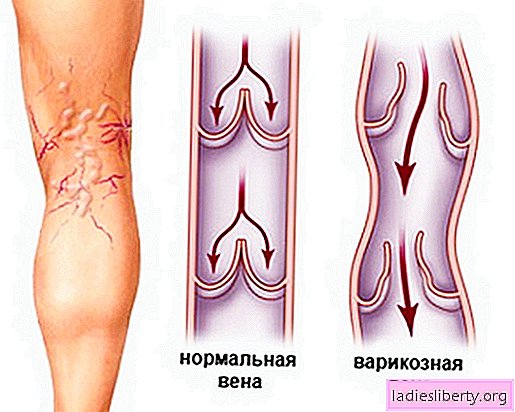
Fat-soluble vitamin D is synthesized in the body under the influence of natural solar ultraviolet radiation. On fine summer days, it is enough to spend 15 minutes in the open air to get a daily dose of vitamin D. In winter, autumn and cloudy summers, replenishing the reserves of “solar matter” will have to be done differently.
What Vitamin D Is For The Body
Five substances are called Vitamin D: Vitamins D1 - D5. They are part of the group of steroid proto-hormones, help to absorb phosphorus and calcium, provide a normal metabolism of these important substances. Scientists believe that two of the five forms of vitamin D are important for the human body, namely ergocalciferol (D2) and cholecalciferol (D3).
"Solar Vitamin" is important at any age, because it strengthens the immune, nervous, cardiovascular, respiratory system. That's what vitamin D is for the body:
• provides the formation of the correct skeleton in children;
• strengthens the skeletal system of adults, which is especially important for women during menopause;
• in old age protects against osteoporosis, cancer, multiple sclerosis, rheumatoid arthritis, supports the normal functioning of the brain;
• reduces the frequency of asthmatic attacks;
• Prevents stroke, diabetes mellitus, reduces the risk of infections, including influenza, acute respiratory infections, hepatitis C;
• normalizes the work of the glands, in particular, the production of insulin;
• supports the stable functioning of the nervous system, restoring cells and ensuring the transmission of nerve impulses.
In pediatric practice, vitamin D is prescribed for the prevention and treatment of rickets in the first two to three years of a baby's life. A substance is used to prevent dangerous diseases, including cancer of the intestine, prostate, and breast. Examining cancer patients, experts revealed a persistent deficiency of calciferol. The rules for the use of vitamin D for therapeutic purposes are determined by the doctor.
How much vitamin D does a person need
The older a person, the more vitamin D they need. to maintain the body in an active healthy state. Foreign and Russian scientists differently assess the need for vitamin D in people of different ages. So, experts at the American Medical Institute of the National Academy recommend the following dosages:
• children and adults under 50 years old - 200 ME (5 mcg);
• people aged 51-70 years - 400 IU (10 mcg);
• older people over 71 years old - 600 IU (15 mcg).
Preventive doses are indicated. However, the Russian Association of Endocrinologists, which investigated the problem of deficiency, prevention of vitamin D and its therapeutic use, gives other recommendations:
• people from 18 to 50 years old with prophylactic goals are shown taking 600-800 IU (15 mcg);
• persons over 50 years old - 800-1000 IU (20-25 mcg);
• for pregnant and lactating women - 800-1200 mcg (20-30 mcg).
The amount of calciferol in the treatment of diseases exceeds the daily dose several times, for example, with bone pathology, a dose of 200,000 IU per day can be prescribed. However, such treatment is carried out under the strict supervision of doctors, it is very dangerous to prescribe drugs on their own.
Signs of Vitamin D Deficiency
When can Vitamin D deficiency occur? The main reason is the lack of solar ultraviolet radiation. Particularly affected by the lack of sun are residents of the cold northern regions.
There are other reasons why the body suffers from a lack of "solar matter". This is the use of certain drugs in the treatment of the stomach (for example, antacids), kidney and liver diseases, Crohn's disease, celiac disease, cystic fibrosis. A vitamin D deficiency can be caused by a poor diet that restricts fish and dairy products.
Calciferol deficiency can be suspected in the following cases:
• visual impairment;
• frequent fractures;
• muscle weakness and muscle cramps;
• joint pain;
• chronic drowsiness and lethargy;
• decreased appetite and weight;
• sweating of the head;
• nervousness and insomnia;
• fast fatiguability;
• deterioration of tooth enamel, skin and hair.
If the body suffers for a long time from a lack of calcium, osteomalacia (bone pathology) develops and osteoporosis, in which the skeleton self-destructs, is an incurable disease that leads to disability, poor quality of life and early death. In a disappointing prognosis - the answer to the question of why the body needs vitamin D.
Vitamin D products
For the prevention of deficiency of "solar matter" there are no special rules for the use of vitamin D. It is necessary to adjust the diet so that it has enough products that provide the natural synthesis of calciferol.
The body will receive the substance from the following foods:
• whole milk;
• dairy products;
• butter and cheese;
• vegetable oil;
• eggs;
• oily fish (herring, mackerel, tuna);
• cod liver and animals;
• caviar;
• fat meat;
• fatty poultry varieties;
• chanterelles (mushrooms);
• parsley and nettle;
• oatmeal and cereal.
In order for calciferol synthesis to proceed normally, it is imperative to go out in the sun and take sun baths.
Vitamin D pharmacy drugs
For preventive and therapeutic purposes, you can take vitamin D preparations from a pharmacy. A doctor should prescribe them in the correct dosage for treatment, and an obstetrician-gynecologist for pregnant women for prevention. If there are no special diseases, you can take pharmacy drugs yourself after 45 years.
The rules for the use of vitamin D and the dosage are indicated by the manufacturer of the pharmacological agent. Please note that with an overdose, symptoms of hypercalcemia, mental disorders may develop, urolithiasis, nephrocalcinosis and other dangerous conditions may develop.
Pharmacy preparations to supplement vitamin D deficiency:
• Forte D3 Nycomed;
• Osteotriol;
• Aquadetrim;
• Necal D3;
• Calcitriol;
• Cholcalciferol;
• Psorkutan with calcipotriol;
• fish fat.
Pharmaceutical preparations with vitamin D are prescribed not only for preventive purposes, but also for treatment of osteoporosis. For example, Osteotriol is a drug that is prescribed by a doctor to treat not only postmenstrual osteoporosis, but also serious conditions such as renal osteodystrophy or hypoparathyroidism. It is forbidden to take during lactation and give to children. The treatment regimen and duration of the course are determined by the doctor.
If an over-the-counter prophylactic is used, then in the general case it is recommended to take it for 6 weeks, then take a break. The number of courses per year individually.
You can not combine several vitamin D preparations at the same time, this is fraught with the development of hypercalcemia. Moreover, during the course of taking tablets, capsules or drops, you need to limit the consumption of butter and eggs - the main source of vitamin D.
It is better to take drugs in solid or liquid form during or after meals. Tablets and dragees can be absorbed, chewed, liquid or oily solutions - drip onto a piece of bread and eat, without washing down.
The human body's need for vitamin D is high. It is no accident that he is prescribed to infants and the elderly. Throughout life, you need to monitor the entry of "solar matter" into the body in order to be healthy and maintain activity in old age.











